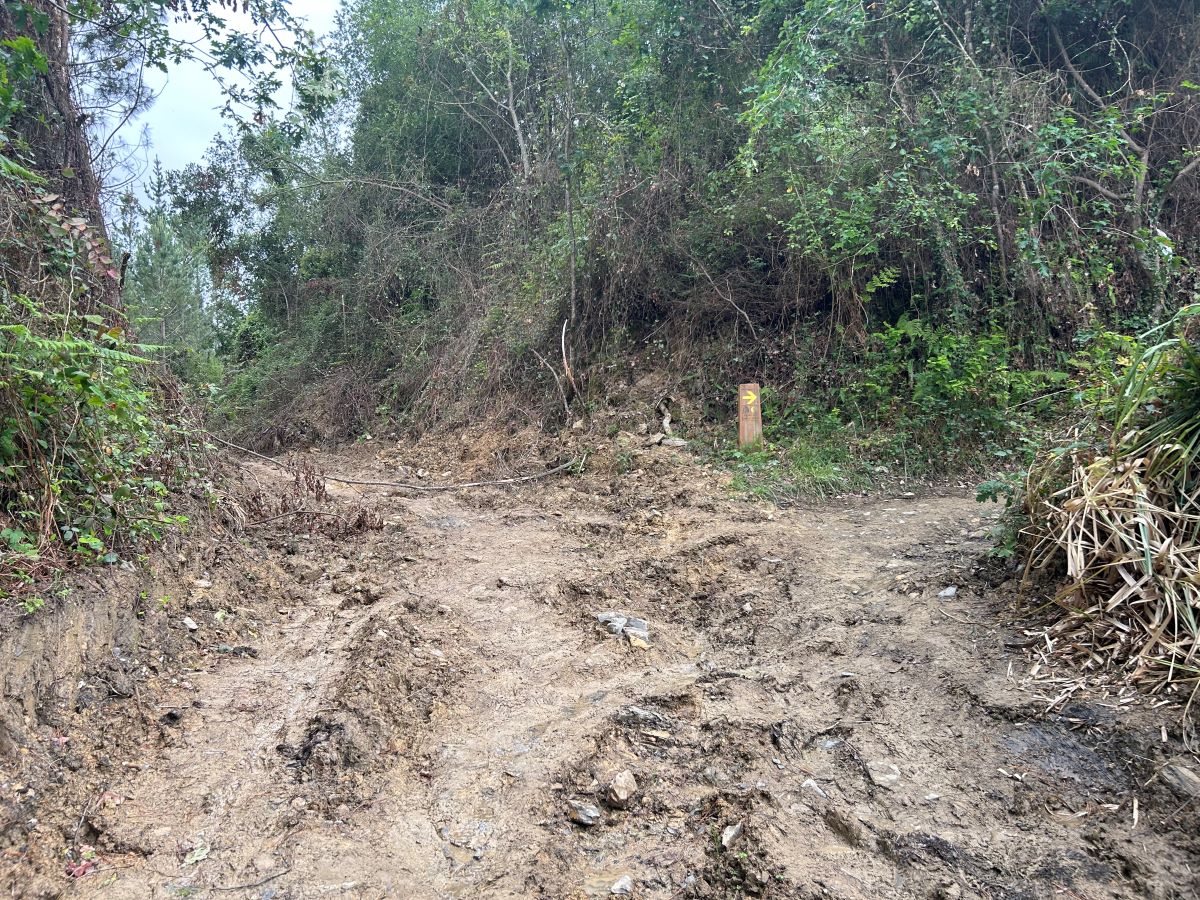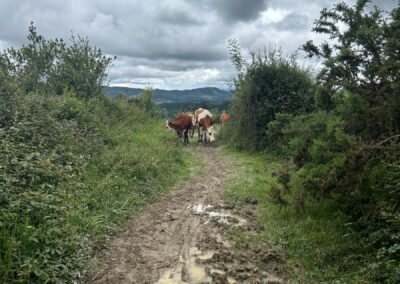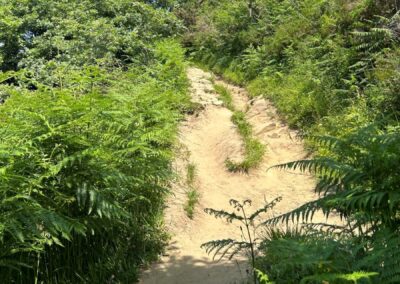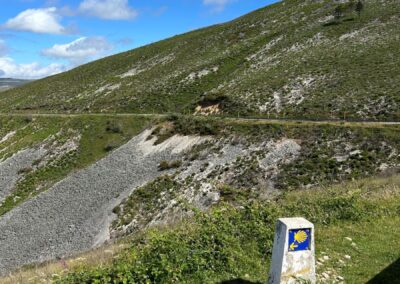
There are times when walking the Camino that the conditions were less than ideal. Walking the Camino del Norte from the Spanish/French border meant that my first day of walking included 32kms and 1000m of climbing and another 1000m of descending. It was a bit of a baptism by fire, not having been able to spend a lot of time climbing mountains in my part of the world. But my most difficult day wasn’t as a result of the mountains, it was related to the rain and mud.
Climbing a muddy slope, I was grateful to have my walking poles with me. There were moments when I would take a step and slide back half way for hours at a time, and other times when my feet would just stick to the ground like a suction cup and I had to pry my foot out of the mud with each step. The only time I ever fell in 60 days of walking, was because of the mud. Thankfully, I fell into the bushes and not completely into the mud.
This particular section, coming out of Guernika in Basque Country, was made far trickier by the fact that it was in the midst of a commercial forestry operation where trucks had desecrated the sacred path with ruts and holes that quickly became large pools of water. While I normally walked at a pace of 5kms/hr, this slowed me to a crawl at less than 2kms an hour.
This also happened to be the day when I arrived at the albergue to learn that there was no room for me and the other one down the street was not open for the season yet. The next one was another 15kms away, which I couldn’t possibly do after the 30 I had already done. I ended up taking a taxi back to Guernika to regroup, which meant I had to rewalk the muddy mess the next morning. Thankfully, it had dried up a little overnight.
A few things occurred to me that day. Firstly, it is really important to make sure one foot is on solid ground before you take the next step. The foot that is about to take the next step is already in a precarious position, so having the other foot be assured is key if you want to avoid falling. I think this is an interesting reminder for those of us who try to go too far, too fast in anything in life.
Secondly, sometimes it’s better to go backwards than to push beyond your limits. Despite my bordering on despair, I had a strange sense of accomplishment the next morning when I rewalked that six kilometer stretch uphill. It felt as if doing it over was a great way to shake off the trouble of that day. Maybe we can all benefit from starting over after a particularly tough slog. In some respects, that stretch proved to me that I could take on some of the more difficult days I knew were coming in the weeks ahead. All my days, even the tough ones, felt easier in light of that one. I was empowered and more resilient when faced with long rainy days, 2000m of climbing or long stretches without services.
I proved to myself that it was possible. And the next night when my husband Scott and I FaceTimed each other (we did so on Sunday evenings), he reminded me what a gift it was to be able to do this. He suggested that when I was feeling particularly challenged, I should say “Isn’t it amazing that I’m able to do this today?!”. And my whole attitude changed going forward.
So many ministers I speak with tell me how much of a gift it is to serve in the ways we do, despite some very challenging circumstances – particularly these days. When they get the honour of accompanying someone in their final days or celebrating that person’s life with the family. The times when they are able to provide encouragement or a friendly ear to someone who needs to be seen and heard. The times when we celebrate the joys of new life welcomed into the community at baptism, or the commitment made by two people in marriage. When we see the Holy Spirit provide us with the words that someone needed to hear on a Sunday morning. Isn’t it amazing that we get to do this today?
There are tough days. There are big mountains to climb. And Lord knows there are muddy paths and rain. And yet, we are not alone. Thanks be to God!
Rev. Éric Hébert-Daly spent June and July 2024 walking the Camino del Norte, the Camino Lebaniego, the Camino Primitivo, the Camino Inglés and the Camino Muxia/Finistera as part of his sabbatical. He walked 1458kms carrying his backpack across mountains, fields and coasts while holding communities of faith and ministry personnel in prayer. Éric will share some insights of his journey over the coming months.



